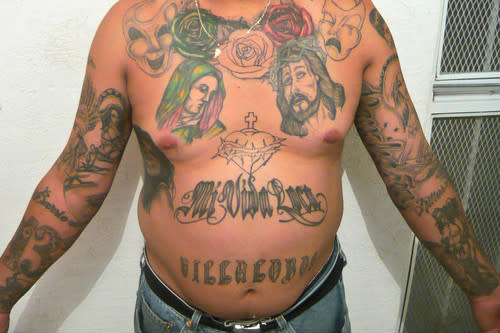 The Lookout
The LookoutImmigrants with ‘gang tattoos’ denied U.S. visas: report

Tattoos linked to violent gangs are preventing some immigrants from getting green cards, the Wall Street Journal reports.
According to the paper, concern about foreign gangs has caused U.S. officials to delay or deny applications for permanent residency submitted by dozens of immigrants with tattoos--even those without connections to gangs.
"The tattoo checks have ensnared scores of immigrants—mostly from Latin America—even though they have no criminal conviction," according to the Journal's report.
In 2006, the U.S. State Department refused immigrant visas to just two people it had "reason to believe" were either gang members or involved in organized crime, the Journal said. In 2010, the State Department denied 82.
Hector Villalobos, a Mexican who had been living with his family in Colorado, claims his application for permanent residency has been permanently delayed because of his body art, which includes a "Smile Now, Cry Later" tattoo that border officials associate with gangs.
The symbol was included in an 84-page handbook published in March by the Canadian Border Services Agency to help agents identify gang members:

Villalobos said he got the tattoo because he thought it merely looked cool.
A spokeswoman for the State Department conceded to the paper that "more attention has been paid to tattoos as indicators of a gang affiliation during the visa process."
And it's not just customs officials who are using tattoos to identify gang members. Last month, police in Yucaipa, Calif., conducted a gang sweep dubbed SMASH (or San Bernardino County Movement Against Street Hoodlums) which focused, in part, on tattoos.
Earlier this month, a church in Roseville, Calif., hosted a low-cost tattoo removal clinic for "people seeking to distance themselves from a past gang affiliations."
"We're doing this to help people in the community that are trying to start over," Francesca Jacopi, manager of Ink Off Me, told the Granite Bay Times, "because their tattoos might indicate that they had been in some way associated with a gang."

